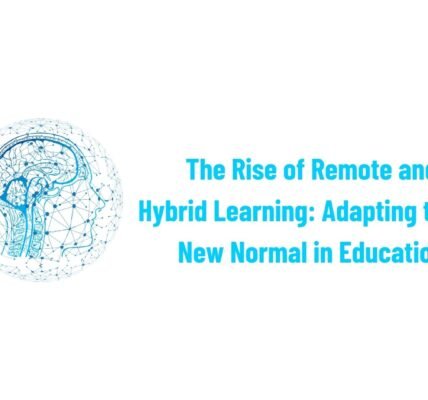Education is more than just imparting knowledge—it’s about nurturing critical thinking, creativity, and emotional intelligence. Shaping young minds requires a blend of traditional methodologies and emerging practices that adapt to an ever-evolving world.
This blog delves into the latest educational trends that are redefining how educators prepare students for the challenges of tomorrow.
1. Personalized Learning: Education Tailored for Every Student
One of the most transformative practices in modern education is personalized learning. Unlike traditional models, which follow a uniform approach, personalized education adapts to the unique pace, interests, and abilities of each student.
Key elements of personalized learning:
- Adaptive software, like Khan Academy, that customizes lessons based on progress.
- Flexible curricula allowing students to explore topics they are passionate about.
- Data-driven insights helping teachers provide targeted interventions.
This approach not only boosts academic performance but also fosters a love for lifelong learning.
2. The Role of Technology in Shaping Young Minds
Technology continues to revolutionize education, providing tools that make learning interactive and accessible. From virtual classrooms to artificial intelligence, modern tools are enhancing how knowledge is imparted.
Technologies transforming classrooms:
- Augmented Reality (AR): Platforms like Google Expeditions offer immersive experiences, making subjects like history and science come alive.
- Learning Management Systems (LMS): Tools such as Canvas streamline assignments, assessments, and feedback.
- Gamified Learning Apps: Apps like Kahoot! make learning engaging and competitive.
While technology has opened up countless opportunities, its success lies in complementing human interaction, not replacing it.
3. Social-Emotional Learning (SEL): Teaching Beyond Academics
In today’s fast-paced world, emotional intelligence is as crucial as academic knowledge. Social-emotional learning (SEL) focuses on developing empathy, resilience, and interpersonal skills.
Benefits of SEL in education:
- Enhances emotional regulation and conflict resolution skills.
- Builds stronger relationships among peers and teachers.
- Prepares students for personal and professional challenges.
Schools implementing SEL programs report improved student well-being and academic outcomes, proving its significance in shaping young minds.
4. Inclusivity and Equity: Education for All
As societies become more diverse, inclusivity and equity have become central to educational practices. Every child, regardless of their background, deserves access to quality education.
Strategies promoting inclusivity:
- Culturally responsive teaching that respects diverse perspectives.
- Use of assistive technologies like screen readers and Braille displays.
- Policies ensuring equal opportunities for students from underprivileged communities.
By fostering inclusive environments, educators create a sense of belonging that is essential for holistic development.
5. Project-Based Learning: Preparing for Real-World Challenges
Project-based learning (PBL) emphasizes hands-on experiences, enabling students to apply theoretical knowledge to real-world problems. This approach cultivates critical thinking, creativity, and teamwork.
Examples of PBL activities:
- Designing sustainable solutions for environmental challenges.
- Creating business models as part of entrepreneurship education.
- Conducting scientific research projects that solve local issues.
By engaging in meaningful projects, students develop skills that are invaluable in their future.
Conclusion: A Balanced Approach to Shaping Young Minds
Shaping young minds requires more than innovative tools and methods; it demands a holistic approach that integrates tradition with modernity. By embracing emerging practices like personalized learning, SEL, and gamification, educators can prepare students for a world filled with opportunities and challenges.
As the landscape of education continues to evolve, one thing remains constant—the dedication to nurturing well-rounded individuals who can thrive in any environment.





